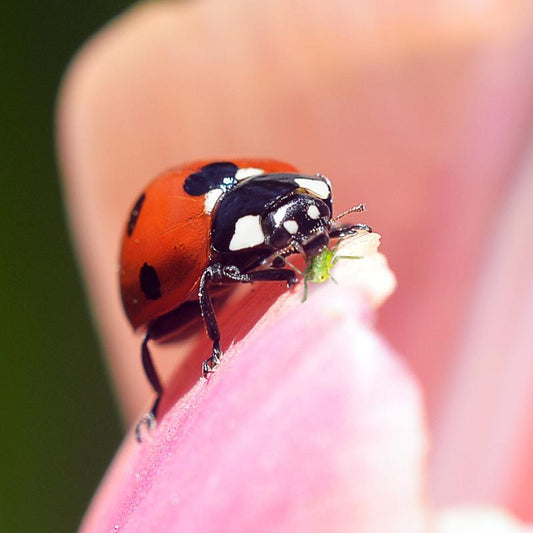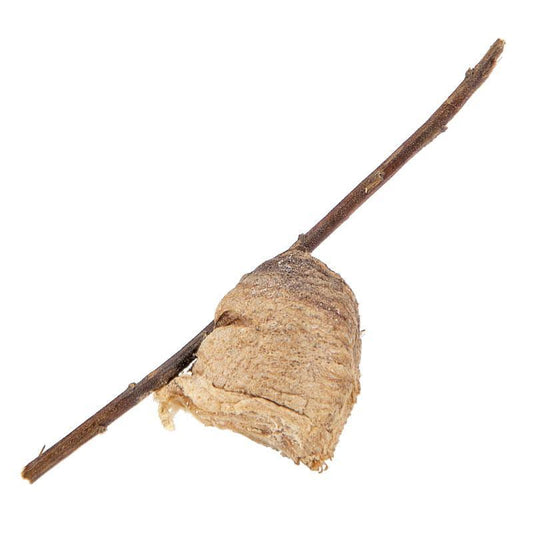Collection: Beneficial Insects
Are aphids or other pests causing concern in your garden? Fear not, as effective organic control is entirely feasible with our beneficial insects for sale. With Integrated Pest Management (IPM), you can combine natural solutions like lacewing larvae, assassin bugs, and ladybugs to tackle pests while maintaining a healthy ecosystem. Whether you’re dealing with Japanese beetles or other common pests, our selection of beneficial bugs for sale can help naturally protect your plants. Explore our beneficial bugs today and take control of your garden’s health with eco-friendly pest management solutions!
Integrated Pest Management (IPM): A Holistic Approach
IPM stands as a holistic approach to pest control that goes beyond the traditional "silver bullet" mentality, where a single potent chemical is used to obliterate pests completely. Instead, it embraces a "systems" approach that views your garden or farm as an integral part of the broader ecosystem. This shift in perspective broadens the horizons of how you address pest problems.
Components of Integrated Pest Management
-
Cultural Control: Cultural control involves physically manipulating the environment to discourage pests. This can include practices such as pruning, strategic plant placement, maintaining cleanliness in the garden, and utilizing techniques like crop rotation.
-
Biological Control: Embracing nature's own checks and balances, biological control relies on natural enemies to combat pests. These enemies may include insect predators, diseases, and parasites. By introducing or encouraging these natural predators, you can maintain a healthier balance in your garden.
-
Least-Harmful Pesticides: In cases where cultural and biological controls are insufficient, the judicious use of least-harmful pesticides derived from natural sources becomes an option. These substances are generally less toxic to the environment, sparing beneficial insects and minimizing harm to the ecosystem.
Beneficial Insects: Nature's Allies
One integral part of IPM is the use of beneficial insects. These tiny but mighty creatures are crucial in maintaining a balanced ecosystem and controlling pest populations. Here are some of the beneficial insects commonly used in organic pest control:
-
Ladybugs: These charming red and black beetles are voracious predators of aphids, mealybugs, and other soft-bodied pests. A single ladybug can consume hundreds of aphids in a day.
-
Parasitic Wasps: While the name may sound ominous, parasitic wasps are essential allies in the fight against garden pests. They lay their eggs inside pest insects, effectively parasitizing and eventually killing them.
-
Predatory Beetles: Beetles such as ground beetles and soldier beetles are natural predators of various garden pests, including caterpillars and slugs.
-
Lacewings: Lacewing larvae are often called "aphid lions" due to their insatiable appetite for aphids, mites, and other small insects.
-
Nematodes: These microscopic roundworms are valuable in controlling soil-dwelling pests like root-knot nematodes. They are an excellent example of biological control below the soil's surface.
Embracing IPM for Organic Pest Control
Achieving effective organic pest control is not only possible but highly beneficial for your garden’s health and sustainability. Integrated Pest Management (IPM) offers a holistic approach, combining cultural practices, biological control through beneficial insects, and the use of least-harmful pesticides when necessary. By adopting these methods, you can maintain a balanced ecosystem and reduce the need for harsh chemicals. If aphids, Japanese beetles, or other pests are troubling your garden, our beneficial insects for sale, such as lacewing larvae, assassin bugs, and ladybugs, provide a natural solution. Explore our beneficial bugs for sale to help you maintain a thriving, eco-friendly garden.
 Sold out
Sold out





























